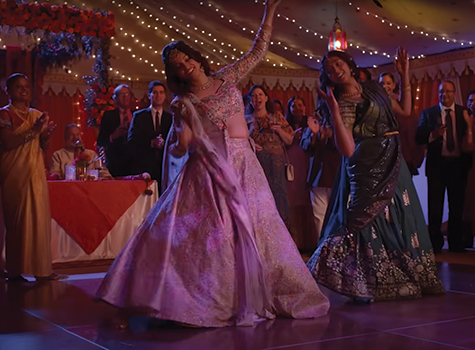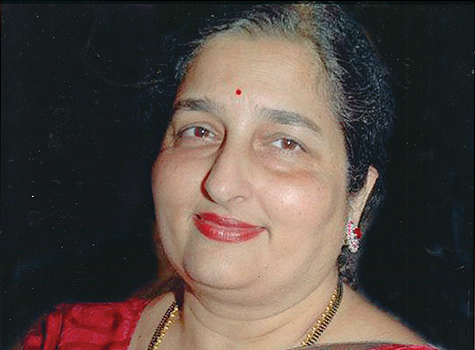
As of June 2023, Netflix’s Never Have I Ever series has given both its audience and beloved characters some much needed closure. By the time the 4th Season begins, most of the teen cast are now seniors and looking toward new horizons for college and beyond. Some issues had already been dealt with in previous seasons while others still lingered for the final 10 episodes of the series to address.
Still at the show’s core is Devi Vishwakumar, played brilliantly by Maitreyi Ramakrishnan. “She’s embracing her emotions, and she’s learned how to control them in a way that empowers herself and empowers others. It makes her a better friend, a better family member, a better romantic partner and a better version of herself,” she said about the character during an interview. “I love how she has navigated her worth when it comes to romantic relationships, especially as a young woman. Often, young women lose themselves in relationships because they want to please someone else. You don’t want to seem odd. You don’t want to seem difficult. You want to be worthy of love.”
Devi is loosely based on show creator Mindy Kaling’s own experiences as a teen, though over the course of the series it becomes abundantly clear where their stories split off. Known by her peers as “Crazy Devi”, the teen is infamous around Sherman Oaks High School for her emotional and erratic behavior. She’s a star student who dreams of attending Princeton and often competes with a fellow student named Ben Gross for top marks.
What’s captivating is the show’s unique perspective to center around Devi’s relationships with others… especially her two best friends Ramona (Eleanor Wong) and Fabiola (Lee Rodriguez); all of whom happen to be young women of color. We watch their various experiences with school, sexuality, social cliques, and slowly discovering who each of them truly wants to be.
While Never exhibits a multitude of scenes involving side-splitting comedy, there are also a great deal of heartwarming ones as well. The series begins with a bit of backstory involving the Vishwakumar’s patriarch Mohan (portrayed in flashbacks by Sendhil Ramamuthy) suddenly passing away due to a heart attack during Devi’s freshman music recital.
It’s clear from the very start that Devi adored her father, and this sudden loss has long-lasting effects on her as a person. Occasionally she still envisions her father’s spirit-like form asking for advice, which persist for quite a while until she’s finally ready to cope with the fact he’s truly gone.
Having lost my own mother during the summer before I started high school, I could relate to the character’s toil with grief. It’s never easy to lose a family member and by the time I was 15, I had already lost three. By 24, I would lose two more. Having someone so close to you suddenly not there anymore can rattle even the most steadfast of people. To see Devi going through something similar to myself, this extra layer makes her all the more real for me.
She also sees a therapist on a regular basis to deal with this loss along with other personal difficulties which develop over the course of the series. She has friction with her mother who appears much more rigid than her late husband. She displays wild outbursts, often in front of other students, which causes both strife and embarrassment for everyone involved.
Yet the one thing which makes Devi so much more interesting as a character is that she is not perfect. In truth she can be quite self-centered, condescending, and hateful as a means to conceal her own flaws. We’ve all had moments of speaking without thinking; moments where emotions fuel our actions no matter how terrible the outcome could potentially be. Watching this young woman gradually mature and escape that deep pit of low self-esteem until finally by the series finale, she’s finally come to terms with who she truly is.
One of the very first scenes in the series shows her praying to a small shrine with various Hindu Gods asking for hot boyfriend, no arm hair, smaller pores, and invitations to parties with drugs and alcohol.
Typical teenager stuff, right? At the end, Devi instead offers thanks to those same Gods to show how grateful she is for those who love her and for finding the strength to love herself.
Never Have I Ever reminds us that the teenage experience does have its fair share of incredibly awkward and emotionally complicated moments. Between school expectations, managing extracurricular activities, various social anxieties, and all the complications of puberty? Well… it’s a lot. While the show does offer up a few glimpses of what many of the other characters are going through, it’s ultimately Devi’s journey.
And we need more characters like Devi out there. We crave characters who portray all the usual hangups, anxieties, and flaws that come with growing up. It’s all about the ‘hero’s journey’.
If that journey happens to involve a physical trip or simply an emotional one, it has the potential to be endearing if handled properly.
While there have been plenty of other TV shows and films which tackle the fertile battleground of teenagedom that is high school, Never Have I Ever has a special zeal all its own due to its exceptional writing, acting, and even the occasional fourth-wall breaking character narration by stars such as Gigi Hadid, Andy Samberg, and John McEnroe.
Take notes, Disney.
Devi Vishwakumar is a perfect example of an empowering, brave, and satisfying strong female character. Let her make mistakes and stumble a few times for her to discover her true self and become a better person. We experience this excellent journey with her, and in turn mature as well by proxy.
Is that too much to ask?
Jennifer Allen works at Saathee and is also a Podcaster, Blogger, Photographer, Graphic Artist, Gamer, Martial Arts Practitioner, and an all around Pop Culture Geek. You can reach her at saathee@saathee.com



